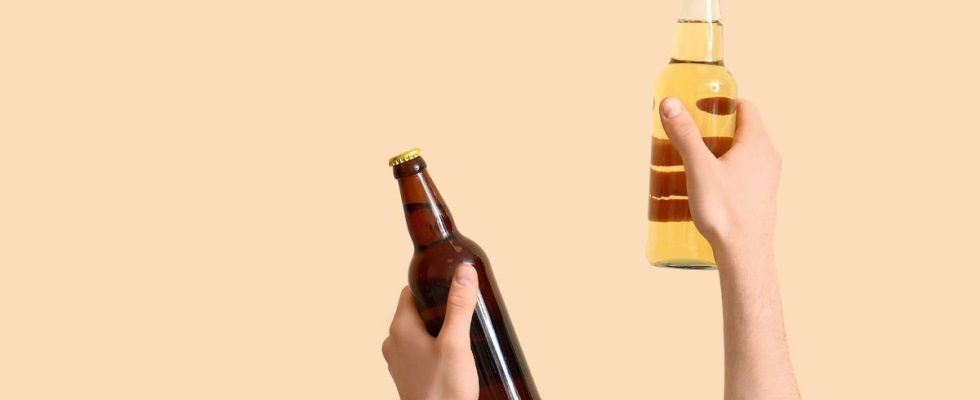Published on
Updated
Reading 2 min.
in collaboration with
Alexandra Murcier (Liberal dietician-nutritionist)
Non-alcoholic drinks are gaining ground in France. But is this really good news? Alexandra Murcier, dietician-nutritionist, sheds light on the subject.
Wine, champagne, gin, beer… Alcohol-free options abound on the shelves. But are they as healthy as they look? Doctissimo carried out the investigation.
To produce non-alcoholic drinks, manufacturers eliminate alcohol. A process that can be done using different techniques:
- by thermal evaporation;
- by vacuum evaporation (the drink is heated to separate the alcohol from the water) ;
- by filtration;
- by Cryo-distillation (a technique which allows distillation without heating, thanks to the properties of liquid nitrogen);
- by reverse osmosis (this involves separating the alcohol from other residues through membranes).
The problem ? Even with these methods, small amounts of residual alcohol may remain. Alcohol-free beers thus display an alcohol content of between 0.5% and 1.2% vol. As for wines, they contain between 0 and 0.3% alcohol.
Caution therefore on the part of pregnant women, who must always check the labels before consuming it.
“It is necessary to raise awareness among pregnant women who do not necessarily have this information“, assures Alexandra Murcier.
Drinks high in sugars and additives
Some non-alcoholic drinks may contain high amounts of added sugars, which can contribute to various health problems (diabetes, obesity, cardiovascular diseases, etc.).
“Although alcoholic drinks can represent an interesting alternative when you consume too much alcohol, they are nonetheless high in calories and rich in sugar for some. They can therefore have an influence on our weight and our health“, warns Alexandra Murcier.
In addition, soft drinks may contain numerous food additives, such as colorings, preservatives and stabilizers. Substances which could be harmful to health. Numerous studies suggest that some of these preservatives, in particular, could be carcinogenic.
In this case, what to prioritize?
If alcoholic drinks are to be consumed in moderation, you will have understood that other healthier options allow you to enjoy yourself and change from the traditional Perrier-lemon.
“As an alternative, we can cite homemade flavored waters (raspberries infused in water for example) or homemade non-alcoholic cocktails in which the quantity of sugar can be limited (homemade mojito with a little cane syrup for example). Outside, you can also opt for fruit and vegetable juices which are less rich in sugar than fruit juices alone, but which provide vitamins.“, concludes the expert.
